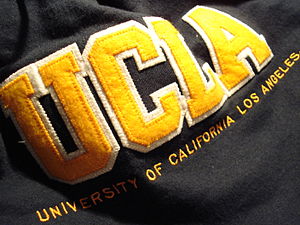To be honest, what I liked best about math was that I could slack off and still be at or near the top of the class. The harder the math got, the better I did, relative to the rest of the class.
Ultimately, I got a pretty decent undergrad math education from UCLA, took some graduate level algebra as an undergrad. I never had to rise above a loping slacker's pace.
Lacked and would have appreciated: category theory (zip zero zilch taught), better differential equations (I got a decent grade with no need to understand the subject, which is lame), continuous distributions and how they relate to the Fourier transform (if this was taught to me, I don't remember it).
It is shocking how much I need to learn now was invented/developed after I graduated from college. Before 1993 - No distributed revision control, no distributed operating systems, no decent theory of just-in-time compiling, no decent published real-world examples of Bayesian probability, Judea Pearl's theory of causality wasn't invented yet, no decent cryptographic hashes, no Bloom filters, no decent introductory texts on decision analysis. My wife says that is why she doesn't want our daughter to go into computers - you have to keep learning and forget the crap that just doesn't matter anymore. Whatever. I think it is inescapable that you have to keep learning just to keep somebody from eating your lunch.
Frankly, I am glad I didn't do well enough, overall, to attempt a post-graduate degree in math or computers, back in 1993. A lot of what passes in academia today is pretty weak sauce, in applied math and computer science. God bless the IntarWebs. I can just grab the info I need and go. One problem, the tempo has increased.


![Reblog this post [with Zemanta]](http://img.zemanta.com/reblog_e.png?x-id=3e14185a-e942-40f5-984c-dc210db33ffb)
No comments:
Post a Comment